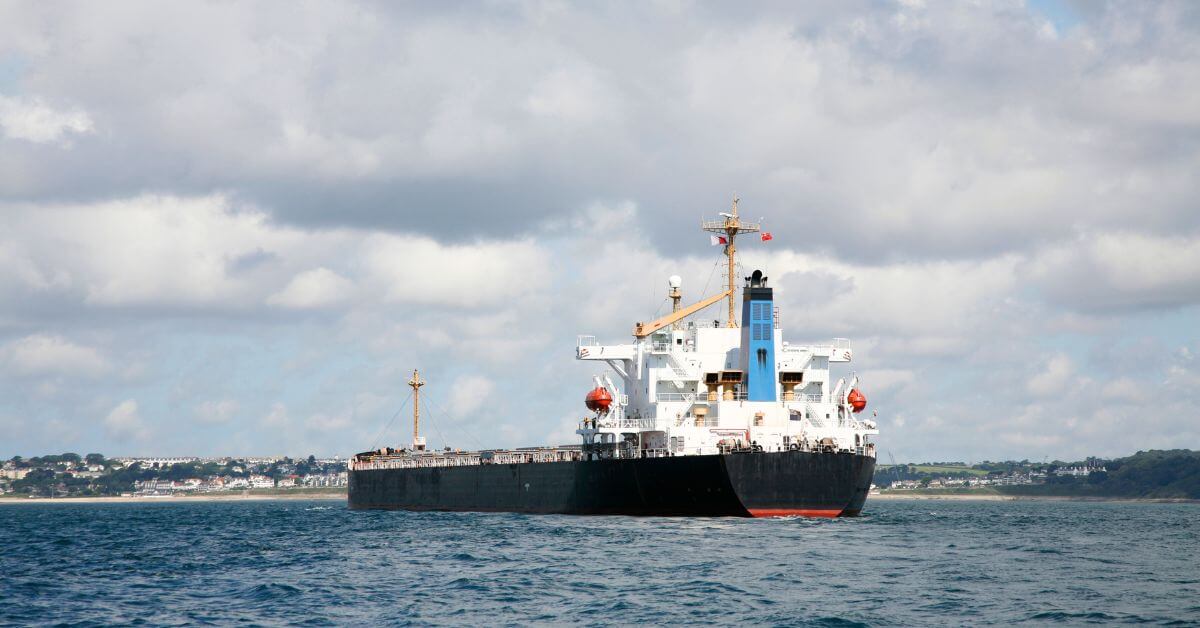Gasum biogas deal and Stena Line FuelEU pooling enable carbon-neutral ferry operations; Vaasa–Umeå corridor becomes first international green shipping corridor
12 August 2025 – Finnish-Swedish ferry operator Wasaline has become the world’s first carbon-neutral shipping company operating in the Baltic Sea, marking a significant milestone in the decarbonisation of short-sea and regional maritime transport.
The achievement is enabled through a biogas supply agreement with Nordic energy provider Gasum, alongside integration into Stena Line’s FuelEU Maritime pooling framework. Together, these developments allow Wasaline’s flagship ferry, Aurora Botnia, to operate entirely on certified renewable biofuels.
The transition also establishes the Vaasa–Umeå route as the first international green shipping corridor currently in operation — a designation supported by DNV through its work under the Nordic Roadmap initiative, which aligns with the Clydebank Declaration and broader efforts to accelerate green maritime corridors.
Wasaline had originally aimed to achieve carbon neutrality by 2030. With the support of this tri-partner collaboration, that target has now been met five years ahead of schedule. All freight and passenger transport with Wasaline is now considered carbon neutral without additional cost to customers.
Wasaline’s carbon-neutral operations are the result of a forward-looking partnership model involving:
“We have attended many seminars where shipping companies are talking about growing ETS costs and how to gain exceptions,” said Peter Ståhlberg, Managing Director of Wasaline. “We chose a different path—seeing regulations as an opportunity. Through this unique cooperation, Wasaline has now achieved carbon neutrality as a forerunner in the industry. Importantly, we do this without passing additional costs to our customers.”
The biogas agreement with Gasum ensures daily operations of Aurora Botnia are fuelled with high-quality, certified renewable gas. This complements the vessel’s existing hybrid-electric propulsion, with further battery enhancements planned.
Under the EU’s FuelEU Maritime regulation, pooling allows multiple operators to jointly meet GHG intensity limits across a shared fleet. Wasaline’s inclusion in Stena Line’s pool has expanded access to renewable biogas capacity, improving the emissions profile of the group.
“Integrating Aurora Botnia gives our pool access to additional biogas capacity, lowering fuel costs and supporting further emission reductions,” said Niclas Mårtensson, CEO of Stena Line. “This collaboration strengthens our strategic position as renewable fuels become increasingly constrained under regulatory pressure.”
This approach could serve as a model for other short-sea operators looking to leverage pooled resources for decarbonisation under the upcoming FuelEU Maritime enforcement in 2025.
DNV, a major driver of the Nordic Roadmap initiative, officially confirmed the Vaasa–Umeå link as the first operational international green shipping corridor. This contributes directly to Nordic and EU decarbonisation policy goals and reflects the kind of cross-border cooperation required for zero-emission shipping to scale.
“We are very pleased to see the Vaasa–Umeå route recognized as the first operational corridor,” said Vegar Rype, Segment Director RoRo and Ferries at DNV.
“This supports broader Nordic ambitions to enable zero-emission maritime transport and showcases how regional cooperation can drive real-world impact.”
Beyond biofuels, Aurora Botnia is also set to be equipped with the largest battery system ever installed on a ROPAX vessel. Its current 2.2 MWh capacity will be upgraded to 12.6 MWh by January 2026, via collaboration with AYK Energy, Foreship, and Wärtsilä.
The system will enable zero-emission operations during port stays and low-speed manoeuvring, further reducing the vessel’s carbon footprint and bunker fuel dependence.
Gasum, a key supplier of biogas and bio-LNG in the Nordics, sees this development as a blueprint for scalable, regulatory-compliant maritime fuel solutions.
“We’re proud to supply biogas to Wasaline and help enable carbon-neutral operations for Aurora Botnia,” said Jacob Granqvist, Vice President, Maritime at Gasum. “Biogas is already a technically viable and commercially available solution for reducing emissions in maritime transport. Our goal is to expand availability across the region in the coming years.”
Gasum’s biogas is produced from renewable feedstocks such as agricultural and organic waste and is certified under EU Renewable Energy Directive (RED II) standards.
Wasaline’s model offers a replicable template for maritime fuel providers and operators navigating EU climate compliance, particularly with FuelEU Maritime and the EU ETS in effect.
Key takeaways for bunkering stakeholders include:
As fuel availability tightens under regulation, this model reinforces the potential of bio-based marine fuels as part of a commercially viable compliance strategy — especially in short-sea and regional corridors.
About the Companies
DNV is the world’s leading classification society and a trusted advisor to the maritime industry. The organization supports energy efficiency, sustainability, and regulatory compliance through R&D, certification, and strategic partnerships. DNV is a central enabler of green shipping corridors and maritime innovation.
Gasum is a Nordic expert in gas and clean energy, offering renewable biogas and LNG for maritime, industrial, and transport customers. The company supports emissions reduction through vertically integrated supply chains and actively promotes a shift to a carbon-neutral future.
Stena Line is one of Europe’s leading ferry operators, managing nearly 40 vessels on 20 routes across Northern Europe and the Mediterranean. Founded in 1962 and headquartered in Gothenburg, Sweden, the company handles over 25,000 sailings annually, playing a central role in freight, passenger travel, and intermodal logistics. It employs 6,200 staff and generates annual revenues of 19.5 billion SEK.
Wasaline is the northernmost shipping line in the world, operating the Vaasa (Finland) – Umeå (Sweden) route. The company carries both freight and passengers, providing a critical link for cross-border logistics and regional supply chains. Its hybrid ferry, Aurora Botnia, is powered by dual-fuel engines and batteries and is fully certified under the Key Flag Symbol for Finnish services.





